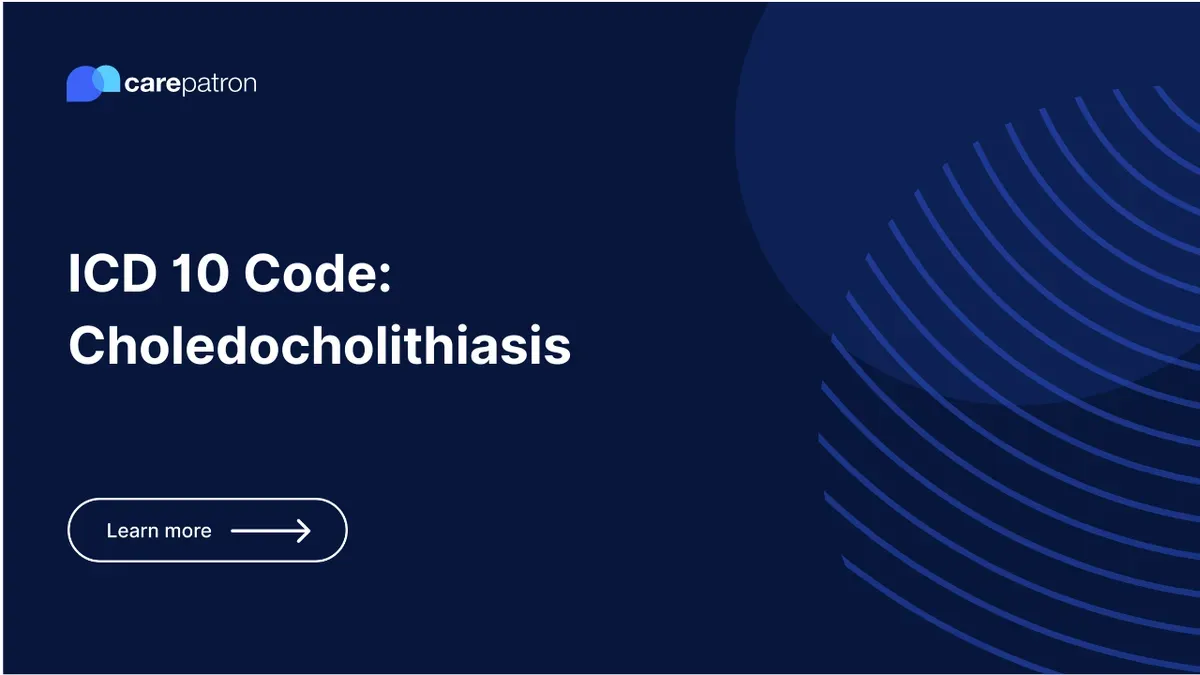
Choledocholithiasis ICD-10-CM Codes
Dive into the Choledocholithiasis ICD-10-CM codes for 2023. Learn about the codes, their billability, clinical info, synonymous terms, and commonly asked questions.
Use Code
Commonly asked questions
Choledocholithiasis is a medical condition characterized by gallstones in the bile duct, which can lead to severe abdominal pain and other complications if not treated.
Symptoms of Choledocholithiasis can include severe abdominal pain, jaundice, fever, nausea, and, in extreme cases, signs of sepsis.
Treatment for Choledocholithiasis typically involves the removal of the gallstones and, in some cases, the gallbladder itself. This can be accomplished through surgery or less invasive procedures like endoscopic retrograde cholangiopancreatography (ERCP).
EHR and practice management software
Get started for free
*No credit card required
Free
$0/usd
Unlimited clients
Telehealth
1GB of storage
Client portal text
Automated billing and online payments
